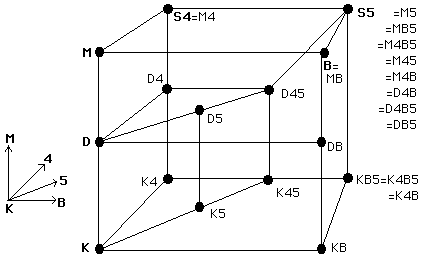Here's the revised argument against GR. I've re-ordered the premises as to make it a valid IP. I've also added a new premise and new conclusion so that the addition of 013 makes it possible to object to a premise. A quick note about Adam's criticism. He claimed that the definition given of an alien natural property can be generalized as a definition for what it means for a natural property to be alien of a world. This is true. And if we were to generalize the definition, his criticism would be correct. However, for the purposes here I need not, and did not make this definition general. Given that "alien natural property" as defined here is Adam's "@ alien natural property", that criticism is avoided and no revision is required. However the criticism is relevant to the response I gave. I did invoke Adam's generalized definition when stating the principle 013. I didn't define what it means for a property to be "alien to a world". For the purposes of stating 013, let the definition be the same, except replace @ with w*.
Def’n:“An alien natural property is a natural property that is not instantiated by any individual in @, and is not analyzable as a conjunctive or structural property built up from constituents that are all instantiated by parts of @”Divers p.115 quoting Lewis (1986a: 91)Let’s assume that Lewis can give a good account of natural properties, since if he can’t that is an objection in and of itself. The objection can proceed as follows:
1) It’s possible for alien natural properties to be instantiated
2) If (4) then (5)
3) If (5) then (6)
4) Postulates O1 – O12 exhaustively represent reality (as required by GR to give a complete analysis of modal concepts). (assume for reductio)
5) No individuals (speaking un-restrictedly) instantiate alien natural properties
6) ~(1)
7) (1)&(6)
8) ~(4)
9) if (8) then (10)
10) GR does not give a complete account of modal concepts
In support of (1), we intuitively think it’s possible that there are ways things could have been that are different than ways things are on a fundamental level. That is, things could have been so different that Humean recombination cannot account for that difference. For instance, things could have been massless, colourless, shapeless, but still had properties we can’t conceive of. Alternately, the universe could have been Newtonian.In support of (2), postulates O1 – O12 postulate the actual world, and us. It then uses postulates O8-O10 and O12 to generate the rest of the worlds. Any individuals generated in this manner can’t be fundamentally different from actual individuals in the way previously described.In support of (3), according to GR P is possible iff P at some world. If no individual at any world instantiates natural property A, then A is impossible by the lights of GR. In support of (9), if the ontological componend of GR does not include all things we think are possible, then by CT not all things we think are possible are possible. If by GR's lights some pre-theoretic possibilities are impossible, then GR is does not give a complete account of possibility.
The most assailable principle is (9). A proponent of GR may argue that while 01-012 are inadequate it may be supplemented, and promise a suitable addition to the postulates O13 - On that may account for alien natural properties. Here’s a possible O13 that may account for alien properties:
O13: For any world w and for any number n, there exists a world w* such that w* has n number of instantiated natural properties that are alien to w AND w* has parts that instantiate every natural property in w.
O13 will guarantee that there is a plenitude of alien natural properties that are instantiated in other worlds. It’s also more defensible in the face of the argument in divers on p 118. That objection tries to set up a model which satisfies (GR) + (OAN), and then set up another model that also satisfies (GR) + (OAN) but fails to include all of the alien natural properties of the first model (thus saying GR + OAN is apt to lose out on some). That is more difficult with (GR) + (O13). Should you generate a w* with respect of @, such that it excludes some number of alien natural properties, O13 posits another world w** with properties alien to both w* and @ that may include them after all. O13 will posit a world that includes n alien natural properties as well as all the natural properties of @. It will in turn posit a world with all of those natural properties as well as other natural properties not yet accounted for, and iterate. Recombination (O12) guarantees that there are worlds with only alien properties, and different combinations of those properties. Note also that alien properties that only come in pairs (or triplets, or quadruplets etc.) can be generated using O13. While it’s still true that no particular alien property is guaranteed to be accounted for, none are explicitly un-accounted for. The drawback is that by O13, it’s impossible for a world to instantiate all of the natural properties. O12 would like there to be such a world, but the qualification “if there is a spacetime big enough to hold them all” would have to be used to say that this is an exception.Should that fail, the next most assailable principle is (3). One would need a good account of natural properties to ensure that O1-O12 don’t in fact capture them all. In other words, this objection may be a little premature
Friday, July 27, 2007
Subscribe to:
Post Comments (Atom)

No comments:
Post a Comment